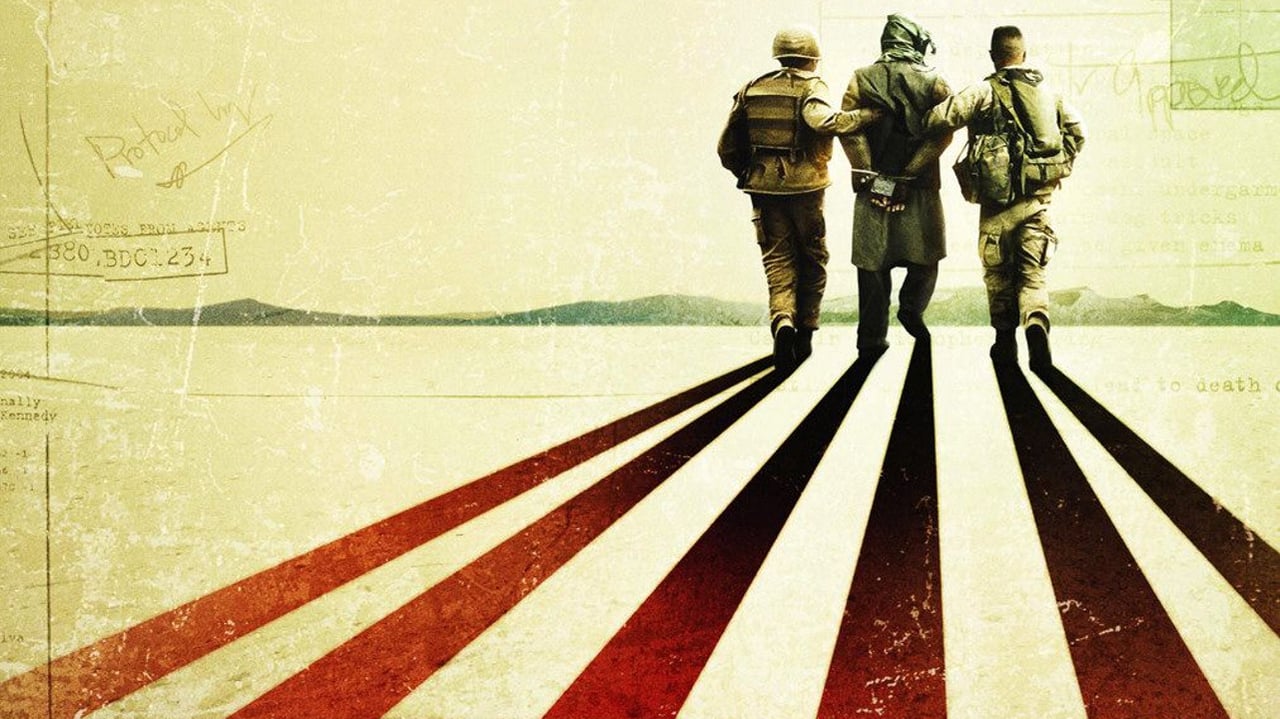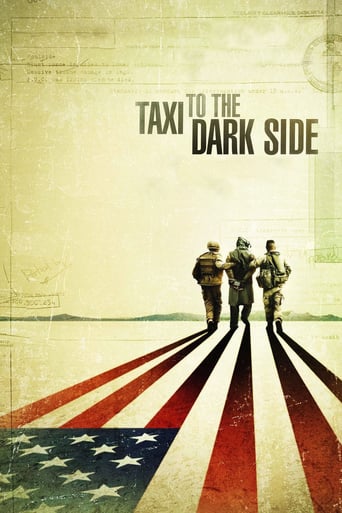

Combine the above sentiment voiced by one of the military men positioned as a prison guard in Iraq with the 'pressure to produce intelligence', and you wind up with the kind of conditions that existed at Abu Ghraib. Was it right? Of course not, and when all human dignity is taken away from a person with the brutal tactics shown in the documentary, it's difficult to understand that there may have been another side to the equation. I'm not condoning the actions of the personnel shown beating and humiliating their captives, but a film like this is never intended to show the flip side of the coin, that is, the atrocities committed by the other side. With entities like the Taliban or present day ISIS, there is no ambiguity in the way they treat their victims. Headless corpses don't get a chance to tell their side of things.
... View MoreAcademy Award winner for Best Documentary Feature, this Alex Gibney film probes into the use of torture by the US as part of their War on Terror. The title comes from the humble occupation of one Afghani who died at the hands of his US torturers, with the overhanging question being how many other innocents have also suffered. While the documentary comes off as incredibly one-sided, never mentioning useful information gained during torture and making it seem like every single person ever tortured by the US was innocent, it is still compelling stuff, exposing some scary systematic issues with the approach to torture taken by the US. At the film's most shocking, we see how some soldiers chose to take things "one step too far... have some fun and take some photos", with the fine line between torture and sadism highlighted. The individual soldiers are not demonised alone though, with the film often mentioning how much pressure was placed onto them to gain useful intelligence; it is almost no wonder that some took things so far. The film additionally looks at an intriguing range of torture processes, with a fascinating "sensory deprivation" method that many soldiers found more effective than physical pain. This is not the easiest film to watch with its candid insight to inhumanity in the face of incredible pressure, but it is thought-provoking stuff, biased as it may be.
... View MoreThe movie begins relatively light by only focusing on mysteriously introducing about the focus victim's person, and then the ordeal he's been through. But then the movie expand and stretch the case to the bigger and relatively more grave matter of the subject. The movie takes the audience to the long detour in exchange of the enlightenment about the torture maltreatment and raising concerns about it. One thing great about this movie is that it didn't bother to shoot any actual reenactment since it already has strong materials in the archival photos, audio recordings and documents. Particularly the photos are indeed strongly harsh. Although they don't portray immediate violence, but they depict immediate stress and humiliation. The ending goes back very nicely to the smaller case just to show that it was such a wicked manipulation after all, all to uncover the serious mistake done by the government.
... View MoreBecause this is a documentary, I have to go about writing this review differently. First I will write about how it's constructed and the information it provides, then I will write my own personal response to the film.Alex Gibney's "Taxi to the Dark Side" is a tell-all about how the U.S. government's position on torture really operates. There is no doubt that this is a controversial subject, but it is essential viewing.Credit has to go to Gibney for not trying to make an attack on the Bush Administration and its practices. Unlike Michael Moore, he lets the information speak for itself. If there is something that deflects blame from someone that we previously thought should be held accountable, he still uses it. On the flip side, he lets no one who is guilty of something get away with it.The information comes fast and furiously, but it is clearly illustrated. Voiceovers, images, and interviews are used to great effect. "Taxi to the Dark Side" is a tad long, but Gibney has a lot to say.Now for my thoughts..."You put people in a crazy situation and people do crazy things."--one of the former interrogators interviewed.Indeed, the times we live in are "crazy," especially for the armed forces fighting overseas. It seemed that after 9/11 everything changed. The terrorist attacks on that day shocked the world, and the American people wanted justice. As an American, I can't blame them.But the question I ask is, at what cost do we want justice? If we don't uphold the values that we are governed by, then what are we protecting? What's the point of fighting if we can't live the way we want to, and the way that millions have given their lives for us to be able to live like in the past? After viewing the film, it seems to me that this stemmed from us wanting quick justice even though it couldn't be obtained. The pressure to do so caused us to act irrationally, and this is the result. Everyone knows that torture doesn't work, as victims are more likely to say what their abusers want to hear than that we simply don't know. But we bypass all the laws to get answers to prove that we're doing something.Yet this answer seems like incomplete reasoning. If this is the case, than why would John Yoo, who authored memos that exploited loopholes to give Bush and his cabinet expansive powers on this issue, and to give us leverage to disregard the Geneva Convention, which is supposed to protect people from these kinds of interrogation. Just because they may not be protected by the Geneva Convention, does that mean that we can torture them? Do they not have the same rights as someone who is? While we can blame people like Lyndie England, who committed the torture, Gibney says while their actions were reprehensible, and they did take their actions too far (and I think they should have been punished), he also portrays them as scapegoats. The soldiers had no real training, and were given vague, at best, guidelines at how to interrogate them.Furthermore, Gibney proves how important our right to a trial is. A shocking number of terrorists are kept in detention and tortured because they were handed over to the US by the Pakistanis and Iraqi army. But they were put in detention without a trial, and most with no evidence (and sometimes they were given a huge bounty in exchange). So how can we really know that these people are actually insurgents? Some are, but how many? Even if you're liberal or a conservative, this is a must see.
... View More